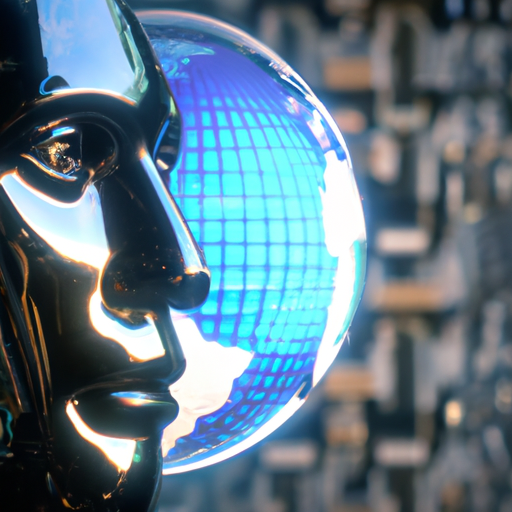Artificial Intelligence (AI) is no longer a futuristic concept. It is already here, and it is changing the way we live and work. AI is transforming industries, creating new jobs, and making our lives easier. However, it is also posing a significant threat to our economy. The AI revolution is happening at an unprecedented pace, and it is essential to understand the potential impact it could have on our economy. In this article, we will explore the megathreat that AI poses to our economy and whether it is even possible to prepare for it.
The AI Revolution
The AI revolution is happening at an unprecedented pace. AI is already being used in various industries, including healthcare, finance, and transportation. AI is also being used to automate tasks that were previously done by humans, such as customer service, data entry, and even driving. The potential benefits of AI are enormous, including increased efficiency, improved accuracy, and reduced costs.
However, the AI revolution is also posing a significant threat to our economy. AI has the potential to automate many jobs that are currently done by humans. According to a report by McKinsey, up to 800 million jobs could be lost to automation by 2030. This could have a significant impact on our economy, as it could lead to increased unemployment and reduced consumer spending.
The Impact of AI on Jobs
The impact of AI on jobs is already being felt in many industries. For example, the rise of e-commerce has led to the closure of many brick-and-mortar stores, resulting in job losses. Similarly, the rise of self-driving cars could lead to job losses in the transportation industry. The impact of AI on jobs is not limited to low-skilled jobs. AI is also being used to automate tasks that were previously done by highly skilled professionals, such as lawyers and doctors.
However, it is not all doom and gloom. The rise of AI is also creating new jobs. For example, the development of AI requires skilled professionals, such as data scientists and AI engineers. The rise of AI is also creating new industries, such as the development of autonomous vehicles and the use of AI in healthcare.
The Impact of AI on the Economy
The impact of AI on the economy is complex and multifaceted. On the one hand, AI has the potential to increase productivity and reduce costs, leading to economic growth. On the other hand, the automation of jobs could lead to reduced consumer spending, which could have a negative impact on the economy.

The impact of AI on the economy is also dependent on the policies and regulations put in place. For example, if AI is used to automate jobs without any support for workers who lose their jobs, it could lead to increased inequality and social unrest. However, if policies are put in place to support workers who lose their jobs to automation, it could lead to a smoother transition to a more automated economy.
Preparing for the AI Revolution
Preparing for the AI revolution is essential, but it is also challenging. The pace of technological change is happening at an unprecedented pace, and it is difficult to predict the exact impact that AI will have on our economy. However, there are some steps that can be taken to prepare for the AI revolution.
Investing in Education and Training
Investing in education and training is essential to prepare for the AI revolution. As AI automates many jobs, workers will need to acquire new skills to remain employable. This could include skills such as data analysis, programming, and critical thinking. Governments and businesses should invest in education and training programs to ensure that workers have the skills they need to succeed in an automated economy.
Supporting Workers Who Lose Their Jobs to Automation
Supporting workers who lose their jobs to automation is also essential. Governments and businesses should provide support to workers who lose their jobs, such as retraining programs and financial assistance. This will help to ensure that workers can transition to new jobs and industries.
Regulating AI
Regulating AI is also essential to ensure that it is used in a responsible and ethical manner. Governments should put in place regulations to ensure that AI is used in a way that benefits society as a whole. This could include regulations around data privacy, algorithmic bias, and the use of AI in decision-making.
Conclusion
The AI revolution is happening at an unprecedented pace, and it is posing a significant threat to our economy. AI has the potential to automate many jobs, leading to increased unemployment and reduced consumer spending. However, the rise of AI is also creating new jobs and industries. Preparing for the AI revolution is essential, and it requires investing in education and training, supporting workers who lose their jobs to automation, and regulating AI. By taking these steps, we can ensure that the AI revolution benefits society as a whole.




